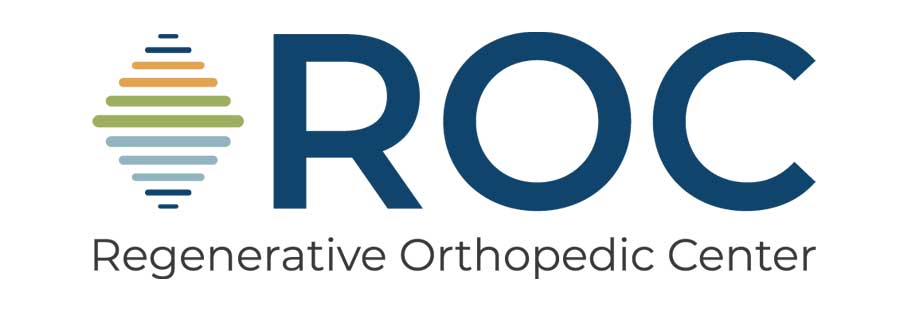When it comes to marathon training, your nutrition is just as important as your mileage. The right foods fuel performance, aid recovery, and support your body through every phase, including taper week. Whether you’re a seasoned runner or preparing for your first marathon, knowing what to eat before and after a run can help you stay energized, recover faster, and avoid preventable injuries.
In this guide, we’ll break down fueling strategies and debunk common nutrition myths to support your training.
Why Nutrition Matters to Your Training
As you increase mileage, your performance depends on three key fuel sources: stored carbohydrates (glycogen), protein for muscle repair, and healthy fats for endurance. Smart nutrition provides performance support, quicker recovery, and injury prevention throughout your race cycle, right up to race day.
If pain in your hips, knees, or feet is limiting your runs even with proper fueling, it may be more than fatigue. These can be early signs of injury. ROC’s sports medicine specialists can help evaluate your pain and keep you on track.
Pre-Run Nutrition: What to Eat Before Heading Out
Eating the right foods before a run can mean the difference between hitting your stride or hitting the wall.
- 2–3 Hours Before:
-
- A mix of carbohydrates and lean protein: oatmeal with banana and almond butter, a turkey sandwich on whole-grain bread, or a rice bowl with chicken and veggies.
- 30–60 Minutes Before:
-
- Quick-digesting carbs for fast energy: a banana, energy gel, or slice of toast with honey.
Pro Tip: Avoid high-fiber and high-fat foods before running as they can slow digestion and cause stomach distress.
Post-Run Nutrition: Refuel & Recover
The first 30–60 minutes after a run is when your muscles are primed to absorb nutrients.
- Carbohydrates: Replenish glycogen with whole foods like sweet potatoes, brown rice, or fruit.
- Protein: Support muscle repair with lean meats, eggs, or plant-based protein like lentils.
- Hydration: Replenish fluids and electrolytes with water, coconut water, or sports drinks.
Pro Tip: A simple chocolate milk or smoothie with fruit, protein, and greens makes a quick, balanced recovery option.
In addition to whole, balanced nutrition, a clear supplement routine can support endurance and recovery all the way up to race day. From protein powders to electrolyte blends, the right combination of food and supplements for marathon training can help fill nutritional gaps and optimize performance. Our team dives deeper into this topic in a previous blog from our Never Miss a Mile series.
Nutrition Myths to Leave Behind
- “Carb-loading means eating pasta all week.”
In reality, carb-loading is about gradually increasing carbs 2–3 days before the race, not every meal for a week. This is because your muscles can only store a limited amount of glycogen at once—loading too early simply burns through those reserves during training. By timing carb-loading closer to race day and pairing carbs with protein, you maximize glycogen storage and support muscle repair at the same time.
- “Protein shakes replace meals.”
Shakes can be useful, but whole foods provide fiber, vitamins, and minerals shakes often lack.
- “Taper means eating less.”
While tapering means dropping your mileage, your body is still repairing and storing glycogen. Taper shouldn’t be about cutting nutrients but instead focusing on portion control.
Local, Whole-Food Fuel in Portland
Supporting your body with the right nutrition doesn’t have to mean relying on processed or sugary “complete” options. Portland makes it easy to fuel naturally with fresh, in-season foods packed with the vitamins and minerals your body needs to train and recover from seasonal fruits and veggies at the local farmers’ market to local bakeries and fisheries. Choosing local, whole-food options not only ensures you know exactly what’s fueling your body, but it also supports the Portland community that will be cheering you on come race day.
Frequently Asked Questions
Q: What’s the best pre-run meal for long runs?
A: A balance of carbs and protein, like oatmeal with fruit and nut butter or rice with chicken and vegetables, eaten 2–3 hours before running.
Q: Should I eat differently during taper?
A: Yes. Keep nutrient intake steady, but shift to slightly more carbs to top off glycogen stores without overeating.
Q: Is it okay to run on an empty stomach?
A: For short, easy runs it can be safe. But for long-distance training, pre-run fueling improves energy and reduces muscle breakdown.
Q: How soon after running should I eat?
A: Aim to refuel within 30–60 minutes with a mix of carbs and protein to maximize recovery.
Q: What if food isn’t enough and I still feel fatigued?
A: Consider evaluating your supplement strategy and recovery plan. Persistent fatigue or pain may also signal an underlying injury, which is something our orthopedic specialists can help address.
Fueling for Success
The right nutrition strategy can help you train strong, taper well, and step onto the start line feeling energized and ready. By focusing on whole foods, smart fueling before and after runs, and cutting through nutrition myths, you’ll build a foundation for both performance and long-term health.
If muscle aches or joint pain keeps you from fueling properly or completing your runs, it may be time to check in with the experts. ROC’s orthopedic and sports medicine teams are here to keep you moving: strong, healthy, and ready for race day.
ROC is a proud sponsor of the 2025 Portland Marathon. This post is part of our “Never Miss a Mile” campaign. To see all of our running tips, please visit our Portland Marathon page.
